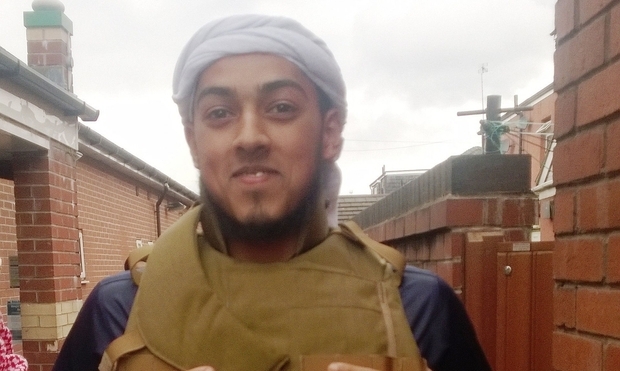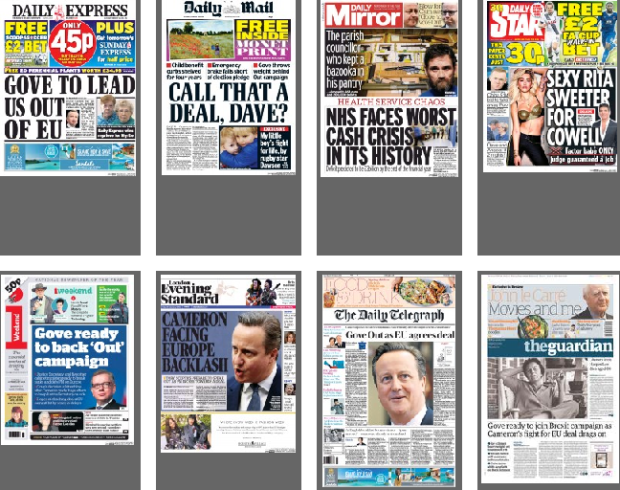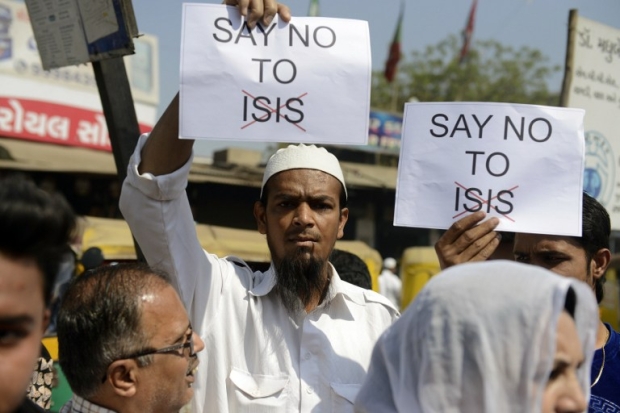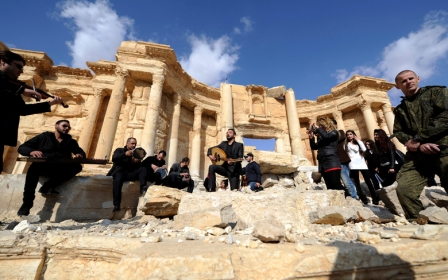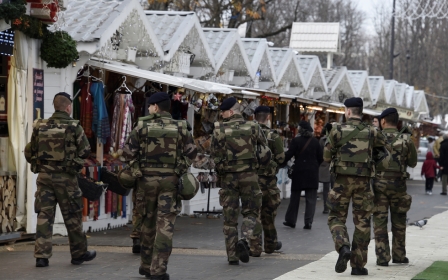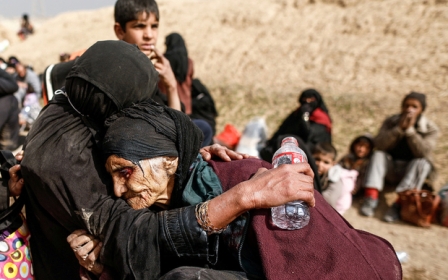IS attacked Britain - and nobody noticed
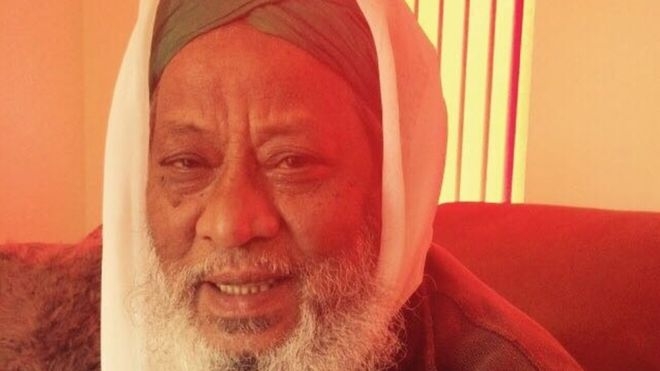
Ask most people in the United Kingdom today whether Islamic State (IS) had successfully attacked the country and they will almost certainly reply "no".
The people most threatened by groups like IS are not Westerners or non-Muslims, but Muslims living in Muslim-majority countries
They will point to attacks in France or Belgium or Germany, but they will say that Britain has so far escaped without violence.
This assumption is dangerous and wrong. IS attacked Britain 12 months ago, and nobody noticed.
Radicalised from afar, and mirroring a similarly horrific attack against a French priest which had garnered international media coverage not long before, two young men bludgeoned a 71-year-old English-Bangladeshi cleric to death with a hammer in Rochdale last February.
This clergyman wasn't a Catholic priest though, nor an Anglican vicar, nor was he a rabbi. Each of those would surely and rightly have garnered front-page news. After all, the murder of Drummer Lee Rigby had been a major, major news story.
So we know that it only takes one death for the media to show interest - as long as it is the right kind of victim.
When the narrative fails
In Rochdale, however, the victim was a Muslim imam. Suddenly, the narrative of "IS versus the West" or "the Muslims versus everyone else" or "Islam versus Christianity and Judaism" made a little less sense.
What was remarkable was how little attention was paid to Jalal Uddin's murder. This was almost certainly because he was a Muslim
Jalal Uddin, the 71-year-old imam who bled out as his killers stood over him filming - as the terrorists had done when they killed the French Catholic priest in Normandy - was IS’s first victim in Britain. What was remarkable was how little attention was paid to his murder. This was almost certainly because Uddin was a Muslim.
Almost exactly a year ago, 21-year-old Mohammed Syeedy appeared in court on the outskirts of Manchester charged with Uddin's murder. A former steward at Old Trafford and a Muslim, Syeedy told the court he was a peaceful man.
On Syeedy’s phone, however, police had found IS propaganda and footage of Uddin dying. At his home, they found more IS propaganda. These were strange things to possess if Syeedy was indeed a peaceful man.
Syeedy's alleged accomplice in the murder, Mohammed Abdul Kadir, had fled the country three days after the attack took place. Counter-terrorism detectives traced him to Istanbul, and believe he crossed the border to join IS.
Between 2001 and 2015, according to figures from the Global Terrorism Database, 75 percent of all terrorism attacks occurred in Muslim countries, claiming 126,000 casualties
In the trial, Syeedy positioned himself as the get-away driver only - blaming the attack on Kadir alone. The jury did not believe him. He was sentenced to 24 years to life imprisonment. The Crown Prosecution Service said that Syeedy had been “inspired by the teachings of Daesh” and that “the poisonous ideology of Daesh cannot be allowed to sow division in our society”.
What Syeedy and his accomplice, Mohammed Abdul Kadir, had done was commit the first successful Islamic State terrorist attack on British soil - by killing not a Christian or a Jew or a Hindu or a Sikh or an atheist, but a Muslim.
The major national newspapers all covered the story briefly, but not one newspaper put it on their front page. Their columnists, paid to comment on the biggest stories of the day, didn’t offer their thoughts. Number Ten didn’t call for a hurried press conference, announce they were going to bomb somewhere new or deploy troops or tighten up border security.
There was also no statement from the Home Office - surprising given its responsibility for counter-terrorism. None of the standard rigmarole happened, and all because Uddin was a Muslim.
The story the data tells
It should be a fairly obvious point to make: the people most threatened by groups like IS are not Westerners or non-Muslims, but Muslims living in Muslim-majority countries. Uddin was killed because he was a Muslim – but, for his killers, the wrong kind of Muslim (the pair accused him of practicing "black magic").
Between 2001 and 2015, according to figures from the Global Terrorism Database, 75 percent of all terrorism attacks occurred in Muslim countries, claiming 126,000 casualties. In that same time period, 3,689, of which 2,996 died on 9/11, were killed in the West.
READ - Young white men are being radicalised. It's time to talk about it
In the 18 months after IS proclaimed its caliphate in June 2014, the group’s French victims (135) came a distant fourth to those killed in Muslim-majority Egypt (289), Muslim-majority Yemen (250) and mainly northern, Muslim-majority Nigeria (271). The top three capitals hit by IS were the Muslim-majority city of Maiduguri in Nigeria, then Riyadh - capital of Saudi Arabia which hosts the two most holy sites in the Muslim faith, Mecca and Medina, and then in third place Sanaa, capital of Muslim-majority Yemen.
Once you start factoring in estimated victims not just of international terrorism efforts by the group, but on the ground in Syria and Iraq – the proportion of Western victims falls yet further. Their formal executions programme alone has claimed at least 2,000 – over six times the numbers of Westerners killed. Another 4,000 are thought to be in just one heavily mined mass grave outside of Mosul. A year ago, the UN estimated that the anti-IS conflict in Iraq had already generated 50,000 civilian casualties, the vast majority of whom will have been Muslims of some description.
When we look at IS attacks, the common narrative is that they are Muslim terrorists coming to attack the Christian or the liberal West. Muslims, including British Muslims, are blamed.
Yet the death of Jalal Uddin confounds that world view spectacularly – as do the number of Muslims suffering both in IS-held territory and in their bloody attacks around the world. This is almost certainly why the British media, who have since 2001, either explicitly or implicitly, built up the narrative of Islam versus the West, failed to register Uddin's terrorist assassination, even though it came at the hands of one of the most feared terrorist organisations in the world.
Had Uddin been a vicar, the story would surely have been very different.
- Alastair Sloan focuses on injustice and oppression in the West, Russia and the Middle East. He contributes regularly to The Guardian, Al Jazeera and Middle East Eye. Follow Alastair's work at www.unequalmeasures.com
The views expressed in this article belong to the author and do not necessarily reflect the editorial policy of Middle East Eye.
Photo: Jalal Uddin (Greater Manchester Police)
Middle East Eye propose une couverture et une analyse indépendantes et incomparables du Moyen-Orient, de l’Afrique du Nord et d’autres régions du monde. Pour en savoir plus sur la reprise de ce contenu et les frais qui s’appliquent, veuillez remplir ce formulaire [en anglais]. Pour en savoir plus sur MEE, cliquez ici [en anglais].



